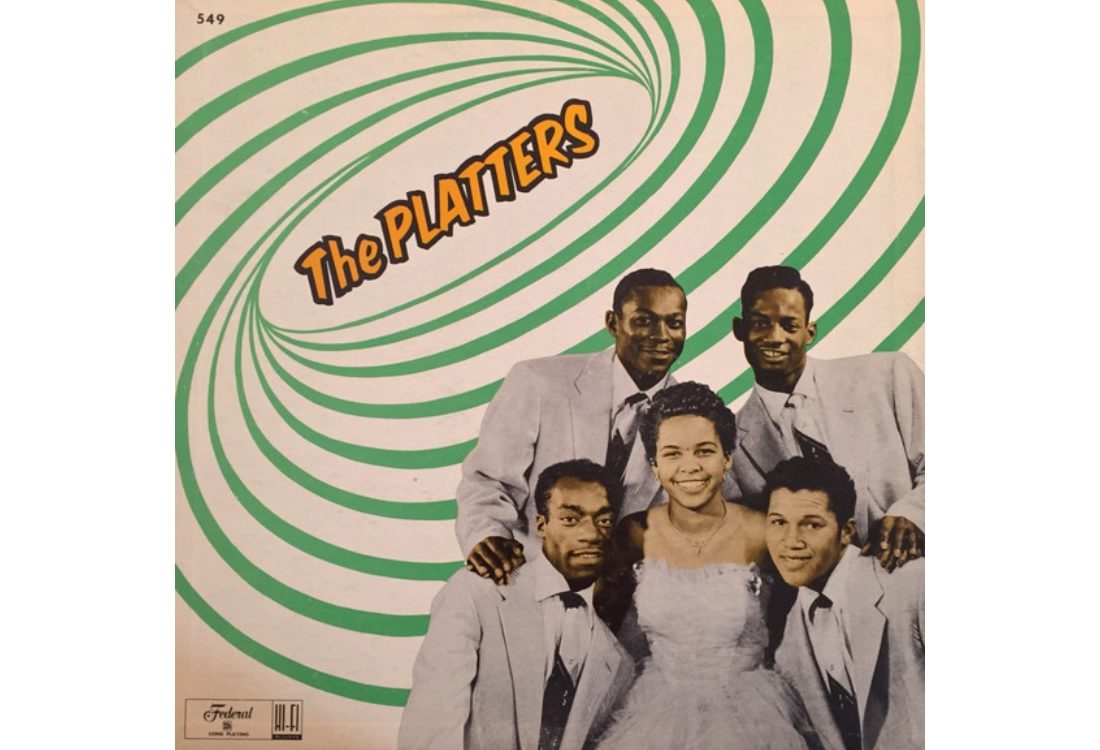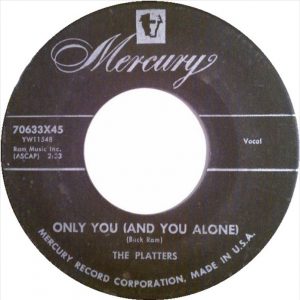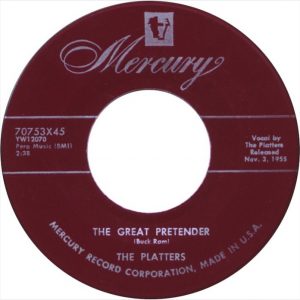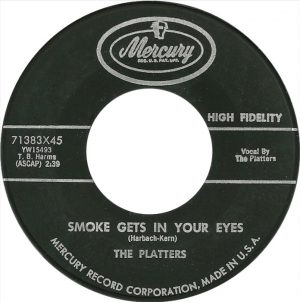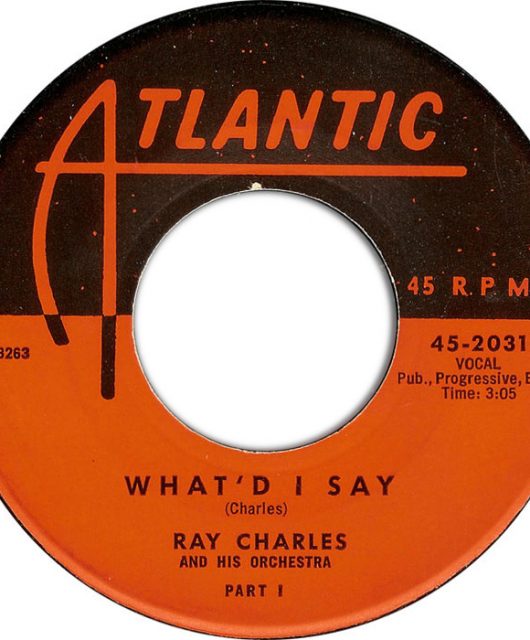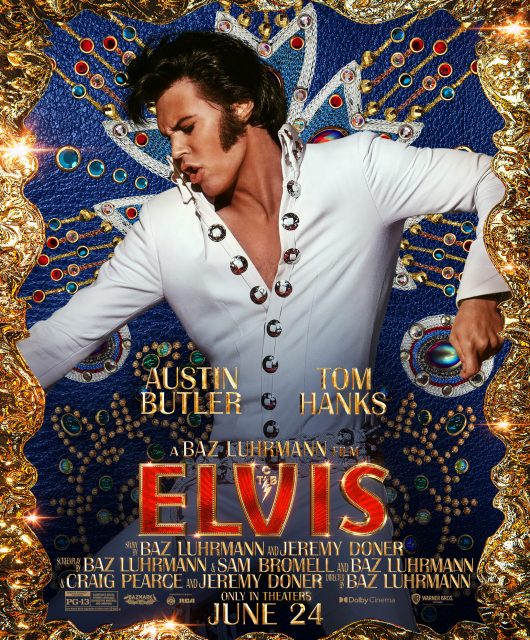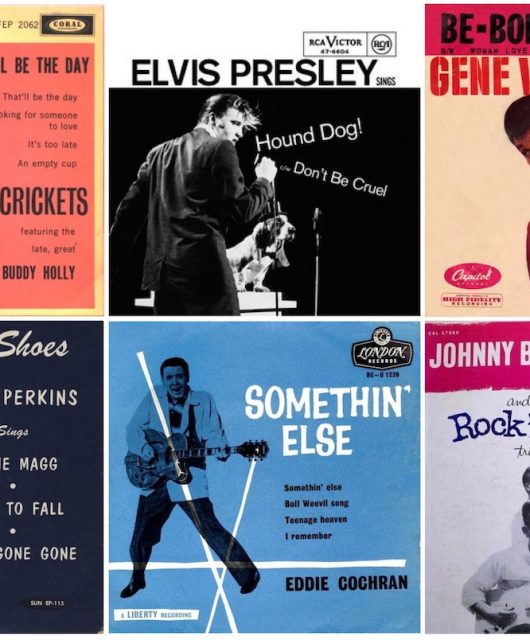In 1955 The Platters soared to fame with their iconic ballad Only You, here Vintage Rock charts the career of the most successful Black group of the 1950s and talk to the men keeping the legacy alive: manager Frederick J. Balboni Jr and current lead singer Lance Bernard Bryant
Words by Douglas McPherson
Coming to fame in the exact mid-point of the 1950s, The Platters were both pioneers of rock’n’roll and a deliberately nostalgic throwback to an earlier time of Tin Pan Alley pop. With smooth, sweet, yearning harmonies that appealed to young and old, Black and white, they topped the charts with My Prayer, previously sung by wartime sweetheart Vera Lynn in 1939, and Smoke Gets In Your Eyes, which dated from the Broadway show Roberta in 1933.
Meanwhile, with their debut hit Only You (And You Alone), The Platters wove their way into the fabric of the rock’n’roll era, becoming the definitive sound of slow dances and teenage smooching.
Their second hit, The Great Pretender, made them the first Black group of the rock’n’roll years to reach No.1 on the US hit parade. They starred in the first rock’n’roll movie Rock Around The Clock, and in the 1970s, when rock’n’roll was being rediscovered and framed as an important cultural moment in US history, they were the only act to have three songs in George Lucas’ big screen love letter to the 1950s, American Graffiti. The group was inducted into the Rock & Roll Hall Of Fame in 1990.
Class & Grace
“The Platters fused class, grace, and style into the rock’n’roll/R&B style or Tin Pan Alley sound,” says the group’s current manager, Frederick J. Balboni Jr. “Vocal groups such as The Temptations, New Edition, Backstreet Boys, Boys II Men, *NSYNC and All 4 One, to name a few, have been made possible in part by The Platters’ emergence onto the American music scene.”
The core of the group was bass singer Herb Reed, the only member to survive all its many line-up changes and perform on every one of its 400+ recordings. Having fled his abusive home in Kansas City, he served a stint in the US Army before settling in Los Angeles where he began his musical career in the manner of many African Americans in the late 40s and early 50s: singing a cappella with his buddies under street corner lights at night.
“Although a fan of multiple artists and genres, Herb had two primary music influences: The Ink Spots from the 30s and 40s and his favourite 1920s Gospel Music Hall of Fame group, The Dixie Hummingbirds,” says Balboni Jr.
The first line-up of the then unnamed Platters included original lead singer Cornell Gunter who later joined The Coasters. By 1953, however, Gunter had been replaced by sweet-voiced tenor Tony Williams who would sing lead on all of the group’s classic hits. A quartet was completed by David Lynch and Alex Hodge (Paul Robi replaced Hodge in 1955).
“We were singing the songs of the day and inventing our own and having a good time,” Reed recalled on The Sam Lesante Show. “We began doing amateur talent shows and started winning first prize and thought, ‘This is alright!’”
Guiding Light
Spotted by producer Ralph Bass, who ran Federal Records (that had recently released The Dominoes’ R&B No.1 hit, Sixty Minute Man), the fledglingvocalists needed a name. Records were frequently called ‘platters’ at the time, so Reed hit on the name The Platters.
They opened their account at Federal in January 1953 with the proto-rock’n’roll song, Hey Now. It had a prominent beat and swinging rhythm, but failed to chart, as did follow-up releases such as the upbeat doo-wop single Voo-Vee-Ah-Bee and rockin’ novelty number Maggie Doesn’t Work Here Anymore.
They also cut an early version of Only You by Samuel ‘Buck’ Ram. While it wasn’t considered single material at the time, its writer became the guiding force behind the group’s subsequent success.
Ram was a white law graduate who’d been in the music business since the 30s, writing and arranging for artists including Ella Fitzgerald (Have Mercy), Duke Ellington, Count Basie, and The Three Suns. Having formed a management company, Personality Productions, he became The Platters’ manager, producer and principal songwriter.
His first move was to add 15-year-old Zola Taylor to the vocal blend, making The Platters one of the first groups with a mixed-sex line-up. “Ram was forward-thinking while writing melodies in a relatively simplistic style that fit the vocalists’ instruments like a glove,” explains Balboni Jr.
Magic Touch
When another of Ram’s groups, The Penguins, had a hit with Earth Angel on the indie label Dootone and were quickly snapped up by Mercury, Ram persuaded the label to take The Platters, too, and to market them like a white group, as opposed to focusing on the R&B market. The Penguins never had another hit, but The Platters proved to be the most successful Black group of the decade.
Their first Mercury release in the summer of 1955 was an improved version of Only You with a vocal gimmick that came about by accident. The group were rehearsing as they drove when an unexpected jerk of the car caused Williams to sing ‘only’ as ‘oh-own-ly.’ At first they laughed, before realising that the distinctive break in the word lent the song a touch of magic. DJs and listeners agreed and the song soon shot up the charts.
In an era when white artists often covered Black records and had the bigger hit (as Pat Boone did with Fats Domino’s Ain’t That A Shame, that year), established Kentucky group The Hilltoppers swiftly released a competing version that reached US No.8 and UK No.3. However, The Platters’ take won the race in the US, peaking at No.5, and hitting the same spot in the UK.
With Only You riding high, Ram told Mercury that the group’s next smash would be called The Great Pretender – before he’d even written it. Going back to his hotel room, he wrote it on a paper toilet seat cover. True to his word, the song was released in November 1955 and topped the US chart for five weeks the following Spring, a feat that made The Platters the first Black group to reach pole position. The record also topped the R&B chart for 11 weeks.
Superstar Status
The group’s fame was cemented by their appearance in that year’s film Rock Around The Clock alongside Bill Haley and DJ Alan Freed. As the tide of rock’n’roll spread across North America, they rode the wave on a touring package show with Bill Haley, Chuck Berry, Clyde McPhatter, Frankie Lymon, and The Clovers.
The hits continued with more than 20 chart entries before the end of the decade. They ranged from the Ram-penned (You’ve Got) The Magic Touch to standards like Harbour Lights. Among the biggest was Twilight Time, which had been an instrumental hit for The Three Suns in 1944, and to which Ram now added words. Mercury filmed a performance clip for distribution to TV shows – a forerunner of the music video.
In 1959, the group fell foul of Jim Crow race laws when they were arrested for having white girls in their motel rooms. The cloud of scandal had a silver lining, though. “Mercury Records convinced Buck and Herb to relocate to Paris, France, to ride out the storm,” says Balboni Jr. “The Platters took off there and, through poetic justice, eventually travelled to over 90 countries, performing in front of kings, queens, a pope, and heads of state, enabling them to become the first African American vocal group to reach international superstar status.”
Golden Oldies
After a few years without Stateside chart action, and with Sonny Turner now singing lead, The Platters made a comeback in 1966 with the soul-flavoured I Love You 1,000 Times which reached No.31 in the US. The next year, they made No.14 with the Motown-styled mid-pacer With This Ring.
Also in 1967, the group joined Bill Haley, Chuck Berry and others on Richard Nader’s first Rock’n’Roll Revival Show at Madison Square Garden – the start of a lucrative new era of touring for ‘oldies’ acts that continued through the next decade. In 1990, The Platters were inducted into the Rock & Roll Hall Of Fame, but the honour was marred by Phil Spector apparently neither knowing or caring who he was supposed to be inducting.
“It was the worst experience that could happen to anybody,” Reed lamented to Sam Lesante. “After that, I didn’t even want the damn award! It was totally ruined.”
Going Strong
From the late 60s onwards, a confusing number of groups calling themselves The Platters competed for business on the live circuit as various past members took their own version of the group on the road. Lawsuits flew back and forth and it wasn’t until 2011 that a court decided that ownership of the name belonged to the man who had coined it, Herb Reed.
Since Reed’s death in 2012, the group’s legacy has been managed by Balboni Jr who had been Reed’s manager since 2005. With all of the original members now dead, the current line-up comprises Lance Bernard Bryant, Jovian Ford, Brittney Necole Bellamy and Omar Ross.
“At the time of Herb’s death, I decided to keep the group as a quartet, ceremoniously leaving the fifth spot for his ever-present spirit,” Balboni Jr explains.
While the group tours extensively, their original hits continue to find exposure, with Twilight Time recently featuring in the TV show WandaVision and an advertising campaign for PlayStation. Current lead vocalist Lance Bernard Bryant sums up their legacy thus: “The Platters created a refined sound and style that transcended racial and gender divides in the 1950s. With songs that explored timeless themes of love and loss, they defined an era and established themselves in the soundtrack of America.”
For more on The Platters click here
Subscribe to Vintage Rock here

